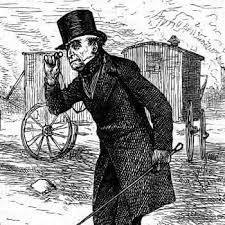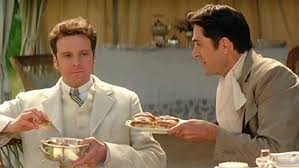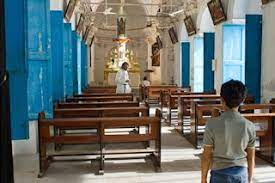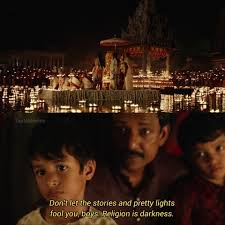This blog is written in response to the Thinking Activity given on Dryden's Essay on Dramatic Poesy by Dilip Barad Sir at the Department of English, MKBU.
John Dryden
John Dryden was an English poet, literary critic, translator, and playwright who in 1668 was appointed England's first Poet Laureate. He is seen as dominating the literary life of Restoration England to such a point that the period came to be known in literary circles as the Age of Dryden.
Essay of Dramatic Poesy
Essay of Dramatic Poesy is a work by John Dryden, England's first Poet Laureate, in which Dryden attempts to justify drama as a legitimate form of "poetry" comparable to the epic, as well as defend English drama against that of the ancients and the French.
Definition of Tragedy
Aristotle
According to Aristotle Tragedy is an imitation of an action that is a serious, complete and of a certain magnitude; in the language embellished with each kind of artistic ornament, the several kinds being found in separate parts of the play: in the form of action, not of narrative; though pity and fear affecting the proper purgation- catharsis of these and similar emotions.
By understanding this definition it is clear that tragedy is an imitation of life, that means it represents some fragments of life in a realistic way.
The most important part of the play is action and it contains several things like speech,dialogue, soliloquies. The other thing that represents or intended is pity and fear and it's very important according Aristotle. In the last catharsis, that releases emotions from the body that is also an important part in the tragedy.
According to Aristotle the characteristics of the tragedy are,
1) The spectacle (Opsis)
2) Melody/ songs (Melos)
3) Diction (Lexis)
4) Character (Othes)
5) Thought (Dianoia)
Dryden’s definition of Play
According to Dryden the Play is “ just and lively image of human nature, representing passion and humor, and the changes of fortune to which it is subject, for the delight and instruction of mankind.”
The definition first emphasizes the word ‘just’ and then on word ‘lively’, so according to dryden the play should be a serious and realistic representation of human life and not the melodramatic version of it.
David Daiches says on this definition that, Human nature implies that drama or imaginative literature in general, shows people acting in such a way as to reveal what they are like. He describes ‘lively’ as an interesting antithesis to dull.
Comparing both definition of Aristotle’s Tragedy and Dryden’s Play
Although Dryden is taking an influence from Aristotle’s definition of tragedy and makes of his own. How he carried over the tradition. Dryden used the words ‘Just and Lively’ image, which means real life. When real life is presented in play one must be involved in the play then. The catharsis comes which is the last part of Aristotle’s definition of tragedy.
In Aristotle ’s definition the line, ‘Tragedy, then is an imitation of an action’. Which says that tragedy is an imitation not an actual so it is copied. Where there is in Dryden' s definition. The line says ‘just and lively image’ here ‘just’ means exact. As it is real so the image is in mind but the way matters how you use it to give it a form of visual to others. So it becomes the natural way.
At last in Aristotle’s definition, he says, ‘Though pity and fear affect the proper purgation- catharsis of these and similar emotions.’ Dryden at the end of his definition says, ‘For the delight and instruction of mankind.’
Both are connected when at the end the purgation or catharsis happens in mankind there will be delighted in one’s heart.
Characteristics
The most important characteristics are Unity of time, place and action. Aristotle supports these three unities in his tragedy but Dryden breaks these unities. He says life is reality and when in play we are depicting the reality of life so there is no unity. life is free itself. So while describing the liveliness of life we are supposed to depict life and its incidents as it is.
Blank Verses and Rhyming
Dryden uses rhyme verses in his play. His most powerful characteristic is that some ancient says, to depict drama in rhyme it is that the writer tries to be unnatural while he is taking support of something, a huge characteristic ‘rhyming verse’. While we can say, it is not an unnatural process, we say that the tragedy or play should have compromised seriousness so the writer is using rhyme or heroic couplet to make the readers or audience aware of actions. And when both definitions agree with delight, Dryden uses rhyme verse in his play to delight the audience. Because the listening aspect is also important in play.
Use of rhyming verse is a natural process, there is also an argument but Dryden defends in this play, Aristotelian tragedy’s most important characteristics is play should be serious while making a serious play Dryden believes to make his speech effective and he does it with using rhymes in his play. Aristotle also says that play should have the ornaments in its language like figure of speech, witness so Dryden does it with the help of rhyming verse.
Tragedy and mixture of Tragedy and Comedy
Aristotle emphasises that tragedy should be only tragedy. It should not have any other emotions except tragic emotion. It describes the misery of life. At the end the tragedy should happen. Aristotle is possessive about the characteristics. He follows traditions. He does not mingle both expressions or emotions of tragedy and comedy. Dryden breaks these rules of play, depicting both expressions of happiness and tragedy in his play. In some incidents the tragedy by Dryden has the element of happiness as the incidents require it and at the serious point it has a tragic effect in its speech, action. Dryden wants to say that there is no one emotion in our life while we make play real we have to be true to life as life has different emotions. It does not walk on only one way, it has many paths. So characters of Dryden ’s play sometimes flourished with happiness and at the serious position they do just with the situation.
Aristotle follows traditions so its characters are of upper class or kings or queens but this rule is not followed by Dryden . Aristotle says while the protagonist is from the upper level and enjoying dignity and the tragedy happens it shows that the protagonist is thrown away from the up to the bottom and how the destruction of the protagonist happens and the tragedy happens.
But Dryden does not accept this rule of tragedy; he depicts a normal man or any protagonist in his play. While we are depicting the reality of life through play, the protagonist must be from middle class or lower class. The destruction of these characters happen







































